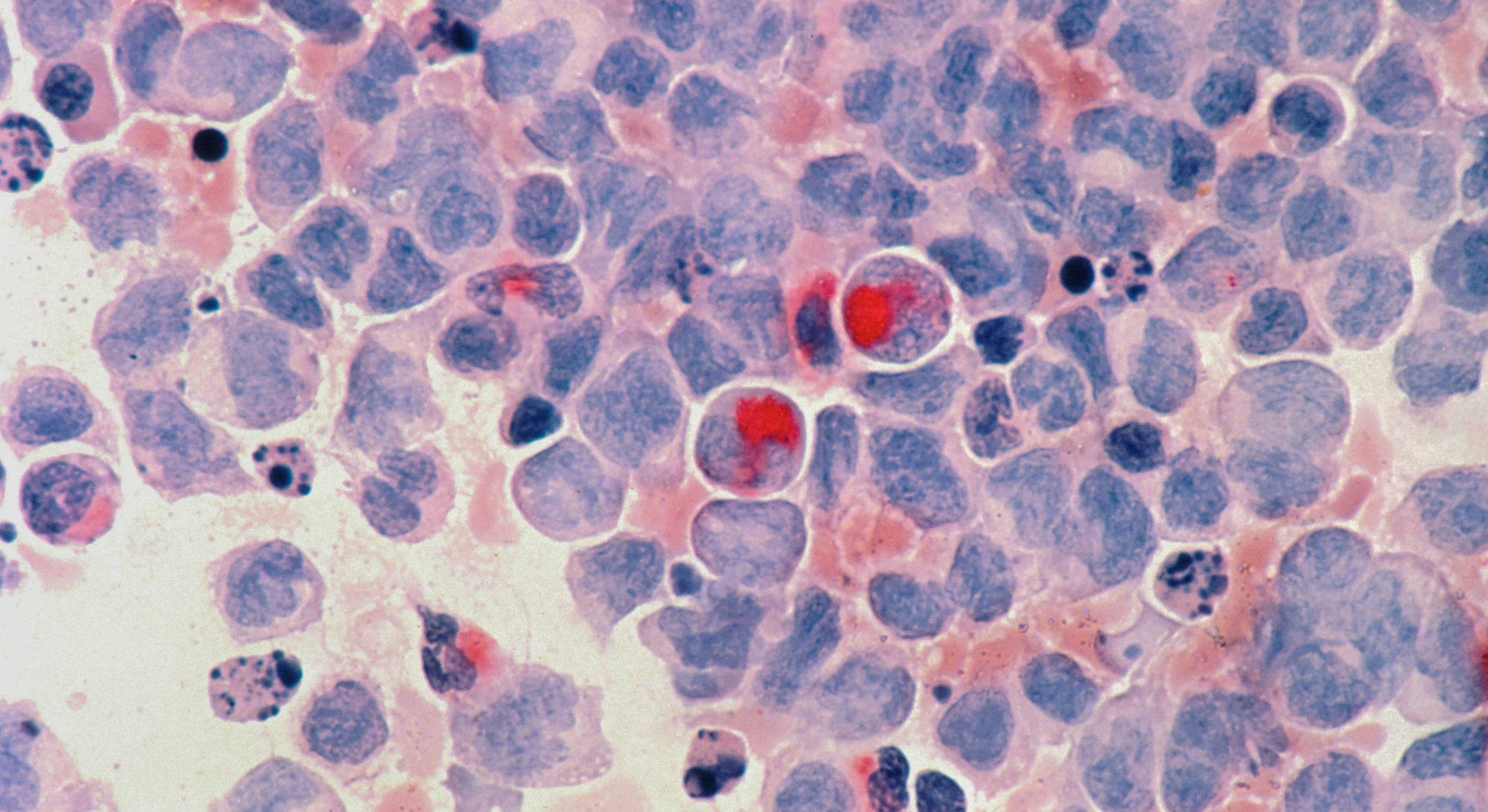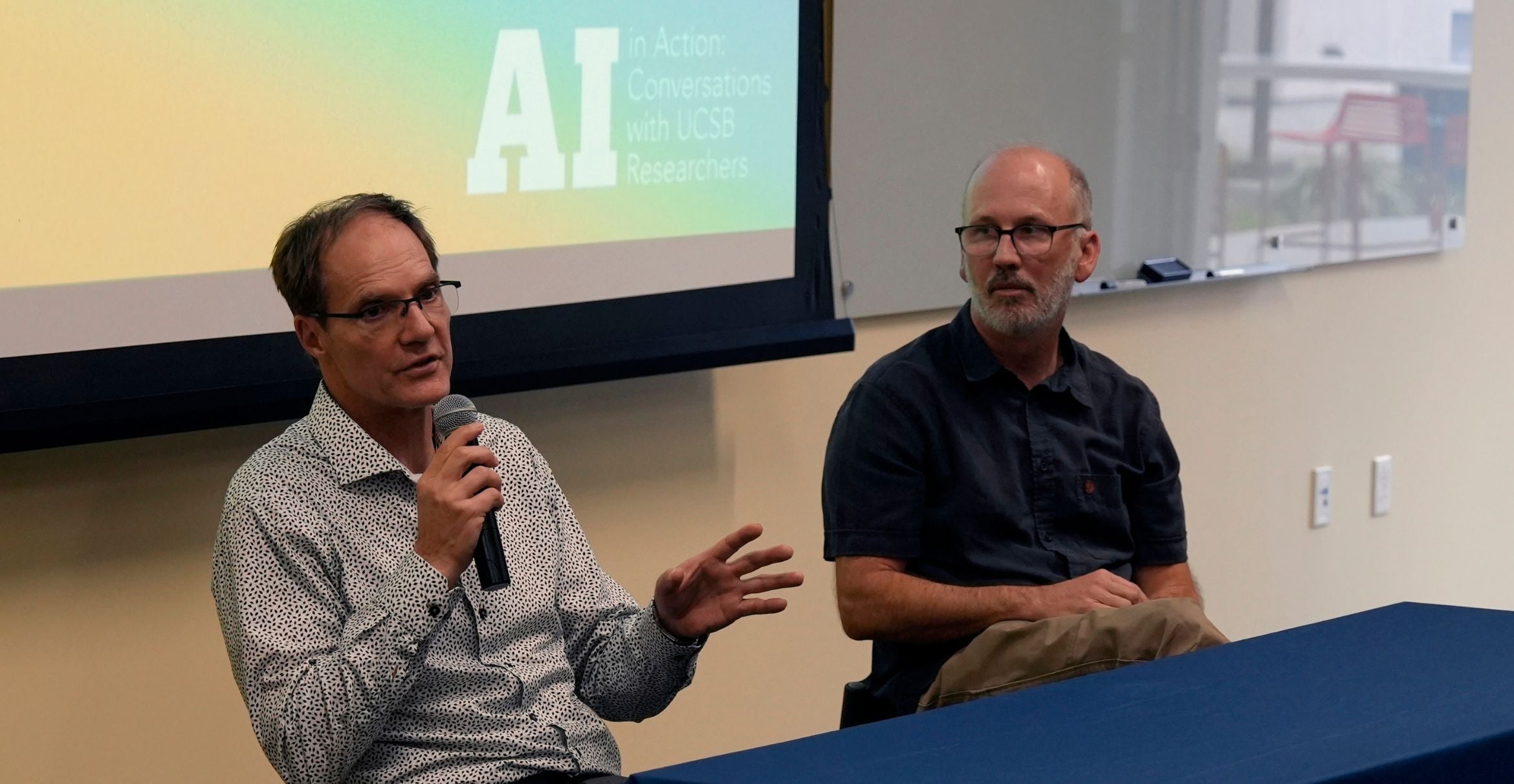‘Tremendous Contributions’
How do we develop from a mass of undifferentiated cells into organisms of tissues and organs with specific three-dimensional morphologies and architectures? That question has been one of the perennial mysteries at the heart of developmental biology — a field that studies the processes of growth and development of living organisms.
For the last few decades, most of the research has focused on the biochemical signals and genetics that orchestrate embryogenesis. However, UC Santa Barbara professor Otger Campàs, who holds a Duncan & Suzanne Mellichamp Chair in Systems Biology and Bioengineering, has made great strides in our understanding of a different, yet essential, aspect of this problem: the mechanical and physical processes that shape embryos.
Campàs’s research group recently demonstrated that building the head-to-tail axis in vertebrates is similar to glass molding. That discovery, which brought a century-old hypothesis from Scottish mathematician and biologist D’Arcy Thompson into the modern age, has major implications for our knowledge of embryogenesis, as well as for the study of pathologies such as cancers and fibroid tumors, and the bioengineering of organs.
For his “tremendous contributions to our understanding of the mechanics of tissue and organ formation,” the Society for Developmental Biology (SDB) has honored Campàs with the 2019 Elizabeth D. Hay New Investigator Award. According to SDB, “his work has provided seminal insights about the physical mechanisms underlying tissue morphogenesis and will allow developmental biologists to connect their molecular and genetic data to the physical forces that sculpt the embryo.”
Established in 2017, this award recognizes new investigators who have performed outstanding research in developmental biology during the early stages of their independent careers. It is named for developmental biologist Elizabeth Dexter Hay, a pioneer in the field who made major contributions to our fundamental understanding of limb regeneration and the role of extracellular matrix in cell type specification.
“I am honored to receive the 2019 Elizabeth Hay New Investigator Award and am very thankful to everyone at SDB,” Campàs said “It is really rewarding to see that the developmental biology community appreciates the work that my lab has been doing, especially since our approaches are rather unconventional.”
An assistant professor in the UC Santa Barbara Department of Mechanical Engineering, and an affiliated faculty member of the molecular, cellular, and developmental biology department, Campàs has brought a unique perspective to the study of embryogenesis by developing groundbreaking techniques that for the first time permit scientists to see the forces and physical characteristics of growing tissues. Using fluorescent oil microdroplets inserted between cells, he and his team were able to measure the tiny forces exerted by embryonic cells as they developed. By using magnetic fields on these droplets to exert forces on the surrounding cells, Campàs and his research group also were able to observe how tissues respond to applied forces, a key property to understand how tissues change shape. These techniques were used on zebrafish embryos to determine how the vertebrate axis is physically sculpted during embryogenesis. The team found that, surprisingly, the tissue transits from a fluid to a solid state as cells jam during maturation, thereby enabling the elongation of body axis, a discovery that landed his work on the September 2018 cover of the journal Nature.
“It is with tremendous pride that we congratulate Professor Otger Campàs on receiving the 2019 Elizabeth D. Hay New Investigator Award,” said Rod Alferness, dean of the UC Santa Barbara College of Engineering. “The award demonstrates, again, the impressive accomplishments of our junior faculty, whose many successes and extensive recognition signal an exciting future for the College of Engineering. The award also underscores the importance of the Mellichamp research clusters, which enable faculty members like Otger, the Mellichamp Professor in Systems Biology and Bioengineering, to engage in collegial collaborations that build strength in important areas of emerging knowledge.”
Campàs is the recipient of other prestigious honors in his young career, including a 2017 NSF CAREER Award from the National Science Foundation and a 2015 Young Investigator Human Frontier Science Program grant. He will present his Elizabeth D. Hay New Investigator Award Lecture at the SDB 78th Annual Meeting held in Boston, Mass. on July 26-30, 2019.



